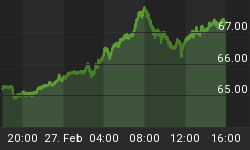... ECB Policymaker Weidmann, Opposes Common Bond Solution
The battle lines are forming for and against "nanny state" common bond solutions that would have German taxpayers covering the liabilities of other countries in a so-called "transfer union".
Please consider Ireland seeks euro bonds as part of crisis solution
Ireland would like to see the euro zone issue common bonds as part of the solution to the bloc's debt crisis, the Irish deputy prime minister said on Sunday.
Euro zone leaders will meet in Brussels on Thursday to discuss ways of halting the threat of contagion to Italy and Spain from Greece's rumbling debt crisis.
Gilmore said it was to Ireland's advantage that European leaders were now looking at the crisis as a euro zone problem rather than an issue for individual countries.
"I believe that will work to Ireland's advantage because solving the European problem will help solve the Irish problem."
Ireland hopes a new plan to tackle the crisis will mean the terms of its own 85 billion euros ($120 billion) EU-IMF bailout package will be loosened, including a cut in the average 5.8 percent interest rate on its European loans and longer loan maturities.
Euro zone finance ministers agreed last week to make the European Financial Stability Fund (EFSF), the euro zone's rescue fund, more flexible, but the details have yet to be worked out.
ECB Policymaker Weidmann, Opposes Common Bond Solution
Please consider Greek debt cut won't solve problem: ECB's Weidmann
Cutting Greece's debt will not solve the country's problems, ECB policymaker Jens Weidmann was quoted as saying on Sunday, adding Athens needed to raise its productivity instead.
"Greece consumes considerably more than it produces, the public budget shows high deficits," Weidmann, head of Germany's Bundesbank and who sits on the European Central Bank's Governing Council, was quoted as saying.
"As long as that doesn't change, a hair cut will not really improve anything," he said, Bild am Sonntag newspaper reported.
On Saturday, German magazine Der Spiegel reported -- citing unnamed German finance ministry sources -- Greece could cut its public debt by 20 billion euros ($28.2 billion) if it bought back sovereign bonds at market prices as part of a rescue.
Wolfgang Franz, head of Germany's "wise men" economic advisers, told Focus magazine on the weekend a hair cut was "inevitable and justified."
"One possibility would be that the current EFSF euro rescue mechanism swaps -- at a significant discount -- Greek bonds into bonds it issues and guarantees," Franz was quoted as saying.
The ECB has signaled it remains fiercely opposed to any form of default. The bank is fearful the problems that have hurt Greece, Ireland and Portugal could spread to other indebted euro zone members if a default were triggered.
Weidmann also said he opposed common euro zone bonds.
"The result would be that European, especially German, taxpayers must cover Greece's state debt. That would be a step into the transfer union that Germany has rightly rejected so far," he said.
Right Place to Crash the Plane
I have talked about the European Nanny State Eurocracy on several occasions, mist recently yesterday, so it is interesting to see these stories today. For an up-to-date recap of the growing support for the Nanny State, please see Right Place to Crash the Plane; Time Running Out for Europe; Nanny State or a Breakup?
In general, Germany is opposed and countries deep in trouble are for common bonds. However, common bond and fiscal unions are against the Maastricht Treaty that created the European Union.
So far Jean-Claude Trichet has treated the treaty like toilet paper, but Trichet will be gone in October, and changes like common bonds and a fiscal union are well beyond rule changes the ECB could get away with.
The big Nanny State clash is coming.















